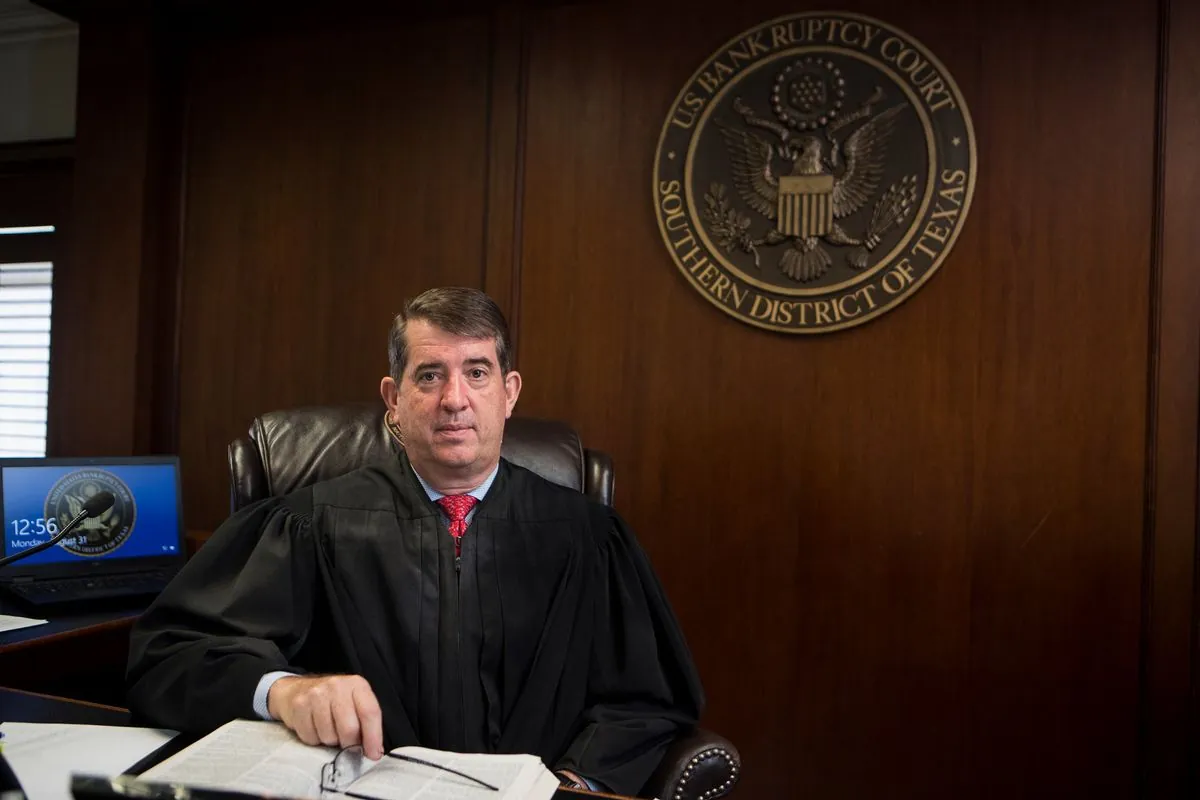Ex-Bankruptcy Judge Ordered Ethics Training for Unauthorized Discussion
Former U.S. bankruptcy judge David Jones sanctioned for unethical discussion with law firm. Chief Judge Rodriguez orders 7.5 hours of ethics training, citing bad faith and violation of judicial policy.

David Jones, a former U.S. bankruptcy judge, has been ordered to undergo ethics training following an unauthorized discussion with a law firm. This sanction, imposed by Chief Bankruptcy Judge Eduardo Rodriguez, highlights the importance of maintaining judicial integrity and adhering to established policies.
The incident stems from a July 18, 2023 interview Jones conducted with members of the Jackson Walker law firm. This discussion, which occurred approximately 13 months ago, was deemed a violation of judicial policy prohibiting judges from testifying about their official acts without proper authorization.
Judge Rodriguez delivered a stern rebuke, stating, "Mr. Jones, frankly, knew better." He characterized Jones' legal arguments as "contrived" and concluded that the former judge had acted in bad faith. As a result, Jones has been mandated to complete 7.5 hours of ethics training approved by the state bar.

This case has shed light on the complexities of judicial ethics and the mechanisms in place to address misconduct. The U.S. Bankruptcy Court, established by Congress in 1978, operates under strict guidelines to ensure fairness and transparency in bankruptcy proceedings. Bankruptcy judges, appointed for 14-year terms by the United States Court of Appeals, are expected to uphold the highest standards of ethical conduct.
The Southern District of Texas, one of 94 federal judicial districts in the United States, found itself at the center of controversy when Jones resigned in October 2023. His departure came after the revelation of a long-term, undisclosed relationship with Liz Freeman, a former bankruptcy partner at Jackson Walker. This relationship raised significant concerns, as Jackson Walker regularly filed cases in Jones' court.
"It is incredulous to this court that well-seasoned attorneys would play with fire like this and proceed on such a legally dubious course of action."
While Jones faced sanctions, Judge Rodriguez stopped short of penalizing Jackson Walker and its outside lawyers, Jason Boland of Norton Rose Fulbright and prominent Texas litigator Rusty Hardin. However, he did issue a stern admonishment, expressing disbelief that experienced attorneys would engage in such questionable conduct.
The case has broader implications beyond Jones' individual actions. The Office of the U.S. Trustee, a component of the Department of Justice established by the Bankruptcy Reform Act of 1978, is pursuing legal action against Jackson Walker. The office seeks to force the law firm to disgorge millions of dollars in legal fees that Jones approved in 33 bankruptcy cases.
This situation underscores the critical role of judicial ethics in maintaining public trust in the legal system. The Code of Conduct for United States Judges, adopted in 1973, provides guidelines for ethical behavior, while the Judicial Conference of the United States handles misconduct complaints.
As the legal community reflects on this case, it serves as a reminder of the ongoing need for transparency, accountability, and ethical conduct in the judiciary. The concept of judicial recusal, with roots in English common law, remains a crucial safeguard against conflicts of interest and bias in the modern legal system.


































